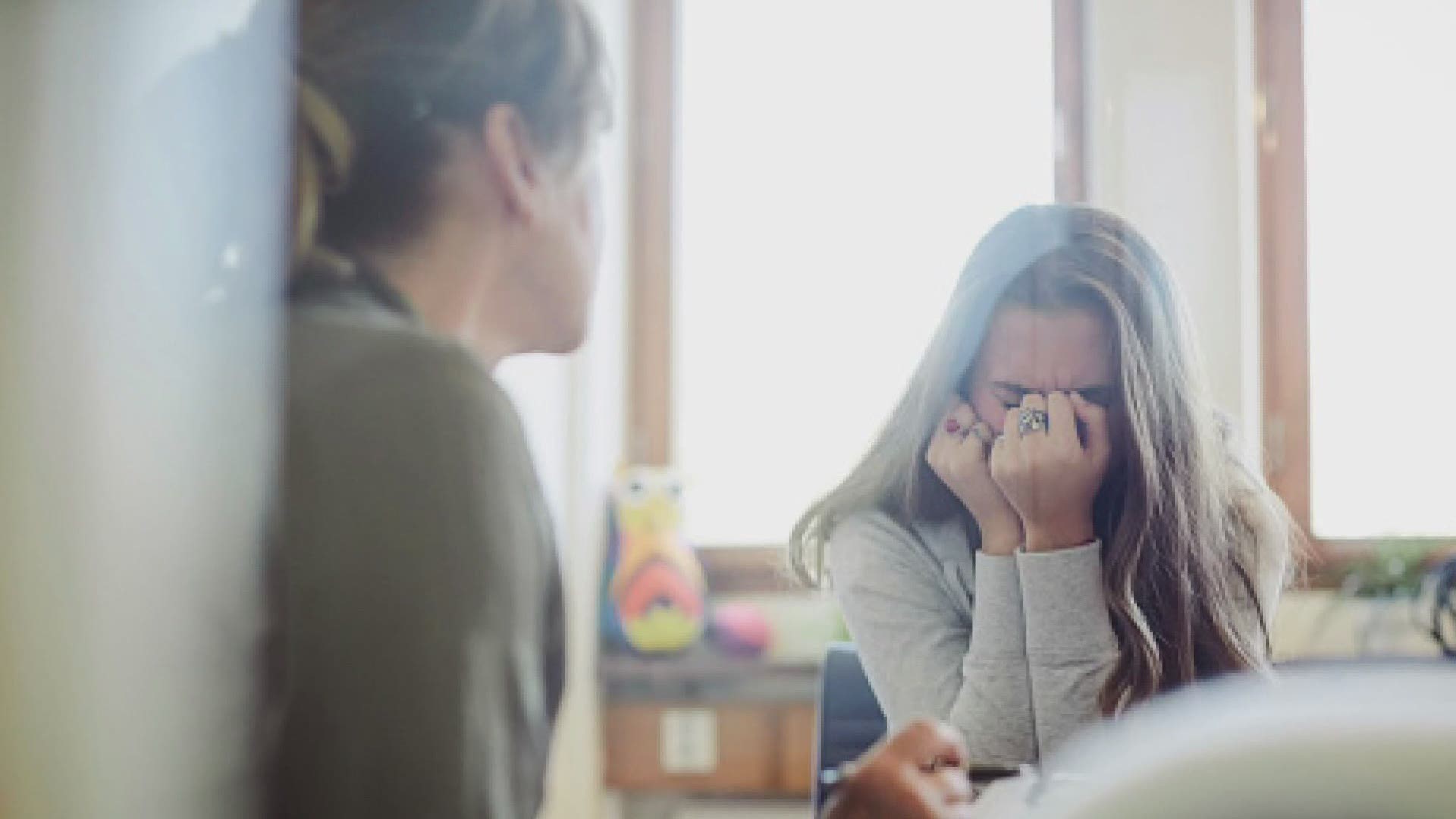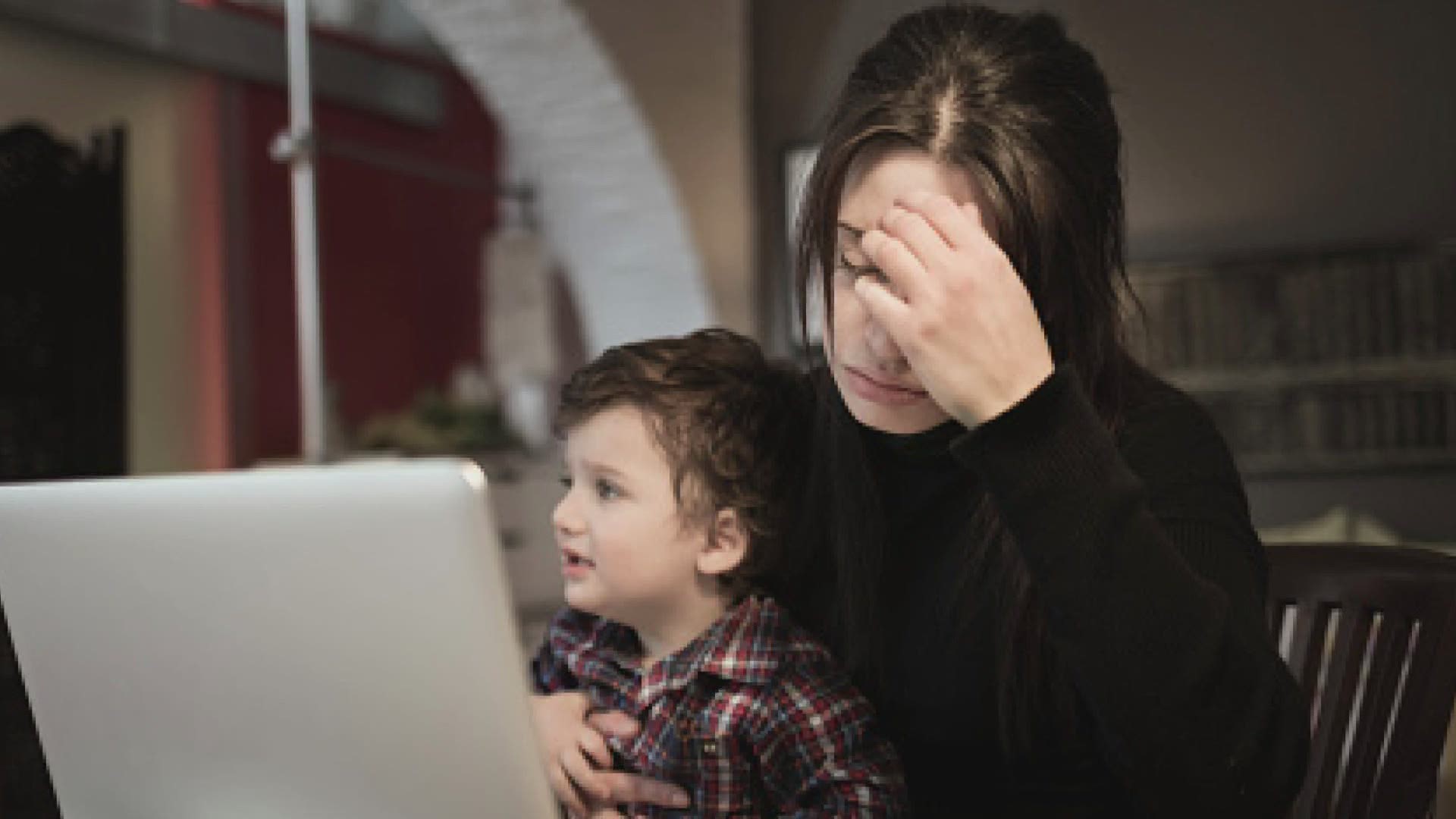GRAND RAPIDS, Mich. — Meltdowns -- child psychologists say they shouldn't come as a surprise to parents as pandemic restrictions continue to alter the way life used to be.
13 ON YOUR SIDE spoke to holistic child psychologist Dr. Nicole Beurkens for some insight on how to recognize the signs of stress in your kids and how to help them cope.
"As the weeks of quarantine wear on, many kids are feeling more frustrated and even angry about the changes and limitations that have been imposed on them," Dr. Beurkens said.
"They want to get back to their normal life activities, friends, and to know what to expect as far as school for the fall. These emotions of frustration, anger, disappointment, and worry are entirely normal, although they may show up in different ways depending on the child. While some children, particularly older kids, are able to verbally communicate about these feelings, for most kids it will show up in their behavior."
"Developmentally younger children may have more meltdowns and tantrums, cry more easily, refuse to engage in normal eating or sleeping routines, and just generally seem out of sorts."
"Developmentally older kids are more likely to express these uncomfortable emotions through lower frustration tolerance, increase disrespectful talk or behavior, and general increased irritability or complaining."
There are several things parents can do to respond to these challenges before they happen:
- Give kids a chance to talk about how they are feeling. You can start by talking about how you’re feeling, and then invite them to share. Give them time to respond, and really listen without trying to solve or fix anything.
- Keep the general routine of life fairly predictable and consistent, as this is very effective at reducing anxiety and irritability for children of all ages.
- Make sure there is plenty of physical activity built into the day. Movement is one of the key ways our brain and body processes and moves through stress and intense emotions. By providing time for physical movement you are giving kids a key tool for discharging stress that can build up throughout the day.
- Ensure that kids are getting enough sleep. While it can be easy to slip into less healthy sleep patterns over the summer, and when trapped at home, good sleep at night is a key ingredient for helping children stay emotionally and behaviorally regulated during the day.
Even with the best proactive measures in place, intense uncomfortable emotions can build up and boil over at times. Here are some tips for parents to keep in mind:
- Focus on keeping yourself calm, especially when your child isn’t. They need to see that you are able to handle them getting distressed and upset, and that you can help them through it.
- Allow children the time and space to blow off steam and express how they’re feeling. Listen to them and acknowledge their feelings. Empathize with them, even if you don’t like the way they are expressing their feelings.
- Don’t try to talk with them about what’s happening when they are in the middle of breaking down. Wait until the situation has calmed and some time has passed, and then circle back to approach it with them.
For more insights like these, visit Dr. Beurkens' website.
RELATED VIDEO:
MORE on 13 ON YOUR SIDE:
►Make it easy to keep up to date with more stories like this. Download the 13 ON YOUR SIDE app now.
Have a news tip? Email news@13onyourside.com, visit our Facebook page or Twitter. Subscribe to our YouTube channel.


